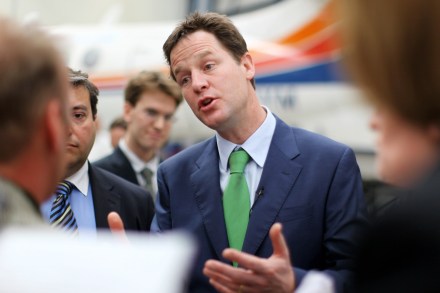Brown Must Manage the Next Twelve Days With Dignity
Let’s not forget that the Labour Party should not have been able to lose this election. I am still convinced that Cameron came to the Tory leadership with a two-election strategy. The swing needed to win a clear majority was always huge. Part of the reason that the party leadership has found it so difficult to retain the lead in the polls is that they could never quite belive their luck at the collapse of Labour support. Likewise, the Lib Dem surge has happened partly because no one is quite convinced that the Tories are ready for government. But the real story of the next week and a half will
















